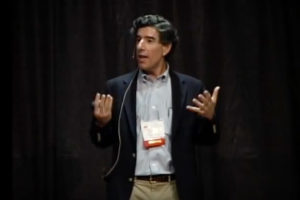When entering college, students create new lives for themselves, integrating academic, social and personal growth.
Though this growth is thrilling and prepares students for a professional life, there is also a large degree of anxiety that accompanies this process. College students can be susceptible to a host of mental illnesses along the way.
Claire Kaufman, a University of Wisconsin–Madison sophomore, has initiated an effort to fight the stigma of talking about mental illness and increasing students’ awareness of suicide prevention. Her efforts include organizing the UW Suicide Prevention Walk, to be held on Saturday, April 9.
The free event will be held from 11 a.m.-3 p.m., with check-in on Library Mall. The walk will follow the Lakeshore Path.
Inspired by personal experience, Kaufman has been working to avail resources to depressed students.
“The stigma that my community put upon depression and mental illness led people to consider it to be shameful,” she explains. “At the time I found that acceptable, but now, looking back at the situation, I can’t believe that doctors would just add to his horrible stigma.”
After recovering, Kaufman was frustrated by the lack of resources for students in need. She created a documentary to educate students at her high school, an all-girls Catholic school. She received an overwhelmingly positive response; many came up to her and thanked her.
“One girl told me that I saved her life. From that point on I realized that just by reaching out and talking to people you can really help them,” Kaufman says.
Kaufman attended Mills College in California prior to transferring. She worked diligently to create a dialogue on campus, helping others come to the realization that more people are affected by mental illness than one may think. When she transferred, she was determined to continue the dialogue.
Working with the Division of Student Life and a group of dedicated students, Kaufman is committed to raising awareness and bringing campus groups together.
"We want to be a compassionate and caring university. We’re working on getting the word out to faculty and staff with resources on suicide prevention and mental illness awareness."
Albert Luciani, another UW–Madison student, was introduced to Kaufman when the Division of Student Life began working with her to organize the walk. Luciani has been active with suicide prevention for almost year after experiencing severe depression. He hopes to create an avenue for depressed students to voice their concerns and get the help they need.
Kaufman and Luciani have been collaborating with a number of other students to make this walk successful. “We have a Facebook group over 1,000 members,” says Luciani. “I want this to grow and evolve to be whatever the students in need want it to be.”
Kathy Kruse, assistant dean of students, has been guiding this group to help organize the walk and represent the interests of the Office of the Division of Student Life. “We want to be a compassionate and caring university,” she says. “We’re working on getting the word out to faculty and staff with resources on suicide prevention and mental illness awareness.”
One of the main goals Kaufman, Luciani and Kruse talk about is making mental illness and suicide a less-taboo topic. Luciani explains that if he had the opportunity to talk openly with other students who were hurting, he may have thought differently last year before he attempted to take his own life. “It’s important to talk openly because that is the only way we can erase the taboo,” he says.
“Too many people consider mental illness a ‘private’ topic,” says Tracy Brookhyser, a member of the UW Psychology Club also organizing the walk. “By raising awareness about suicide prevention, we hope that more people will feel comfortable speaking openly this topic.”
In addition to creating a new initiative on campus, the walk is a fundraiser for the American Foundation for Suicide Prevention. Kaufman hopes this will be an annual walk.
Kruse insists the importance of the involvement of the dean’s office because this illness affects students day in and day out.
“Research shows that as the world change, so do college campuses,” she explains. “Students are coming in with more diagnoses and experiencing more mental illness.”
She hopes this walk, students will take what they learn and spread the word about resources on campus, encouraging everyone’s voice to be heard. “We are committed and know it affects our students, so we’re focusing on the issue,” Kruse says.
The week leading up to the UW Suicide Prevention Walk will feature number of events that will educate the campus community about mental health and how it affects everyone. Events will feature panelists, movies, and interactive workshops. All events are free and open to the public.
On Monday, April 4, a meditation workshop will be held from 5-6 p.m. in Room 121 of the Psychology Building. Lead by Richard Davidson, director of the Laboratory for Affective Neuroscience, the workshop will teach useful meditation techniques and answer questions from participants. Davidson conducts research focused on emotion and affective disorders, including depression and anxiety.
From 5:30-9 p.m., the UW Psychology Club will screen the movie “The Bridge” in Room 107 of the Psychology Building. This film focuses on the frequent suicides that occur on the Golden Gate Bridge in San Francisco. After the screening, a forum will be lead by Jeff Henriques and Danielle Oakely. Henriques is a senior lecturer in the psychology department, while Oakley is the director of counseling and consultation services at University Health Services.
The Madison Suicide Prevention Committee is also selling T-shirts to support the American Foundation for Suicide Prevention. They cost $10 and can be purchased in the Division of Student Life office, 75 Bascom Hall.
– Aimee Katz






